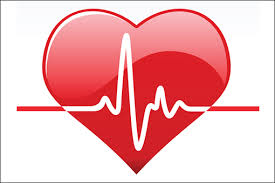February is universally known as a month devoted to heart health. And while many people know the basics of keeping a healthy heart, there are a few under-the-radar health issues that can have a surprising impact on your heart health.
Sleep
People who don’t get enough sleep are at a higher risk for heart disease including things like high blood pressure or even a heart attack or stroke. Lack of good-quality sleep raises your levels of cortisol and can increase general, low-lying inflammation throughout your body.
E-cigarettes
A recent report by the American Stoke Association showed a 71 percent higher stroke rate among people who use e-cigarettes (that’s double those who smoke cigarettes). Although some see vaping as less dangerous than the nicotine in regular cigarettes or even as a way to help quit smoking, these products have their own health hazards. If you are trying to quit smoking, investigate other ways that might be as effective but without the added significant health risk.
Diet Sodas
Having a diet soda every now and then isn’t a big deal, but if you routinely drink them throughout the day, you could be setting yourself up for heart troubles. A recent study published in the American Heart Association’s journal Stroke linked drinking two or more diet sodas a day with increased risk of stroke. The study focused on a cohort of postmenopausal women, but raises questions for the larger population’s heart health.
Menopause
There’s not much you can do about going through a natural physical change. It helps to be aware that menopause reduces estrogen which has heart-protective benefits. Women who are approaching, going through, or finished with menopause should pay extra attention to their heart health. Focus on strength training, stress reduction, sleep, diet, and exercise to keep a healthy heart.
Mental Health
Conditions like depression and anxiety can do a number on your heart health. If you are feeling any of the symptoms of depression or anxiety, seek treatment to get help. Medication and/or talk therapy can have a profound effect on your daily life and that helps your long-term heart health.
Oral Health
Gum disease (symptoms include inflamed gums or bleeding when you brush or floss) can indicate systemic inflammation, one of the known risk factors of heart disease. Dental checkups are easy to let slide, so make sure you make it a priority. Even if you take excellent care of your mouth, a dentist can help stop trouble before it becomes a major problem.
- WOC Nurses Week Highlights Specialty - April 16, 2024
- Honoring Radiology Nurses Day on April 12 - April 12, 2024
- Travel Offers New Career Possibilities - April 8, 2024



